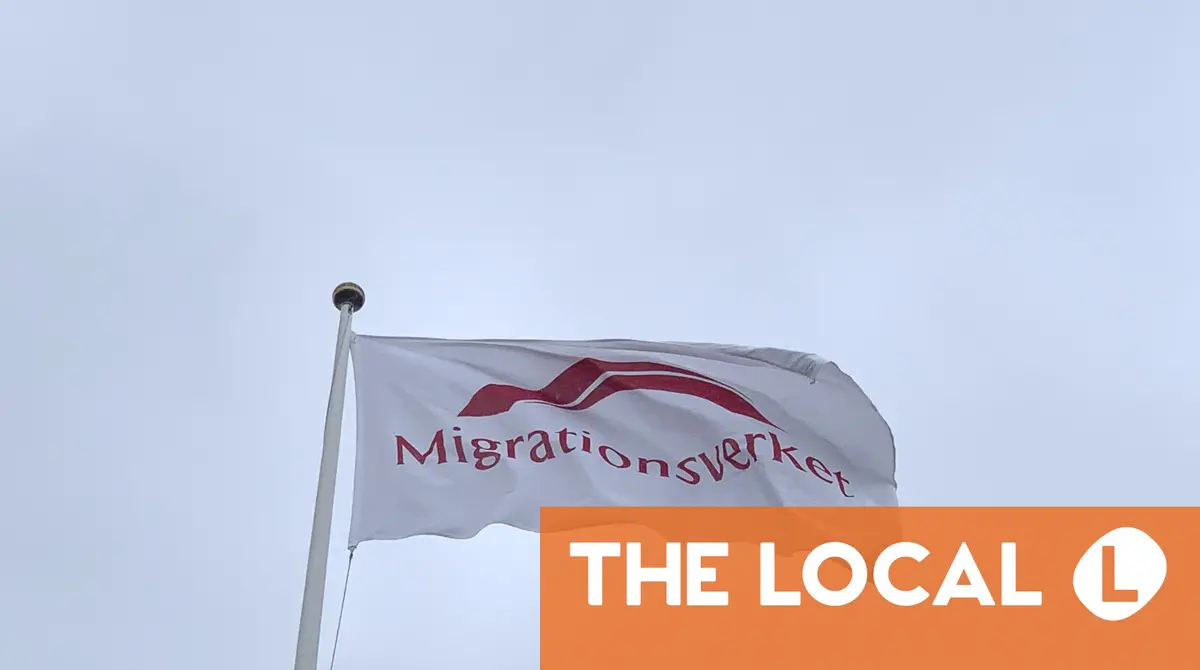New security rules for citizenship mean that applicants now need to turn up at the Migration Agency (Migrationsverket) in person to confirm their identity. How will this process work?
What has happened?
Since the beginning of April, applicants for Swedish citizenship have had to undertake an in-person identity check at Migration Agency offices in order to qualify for citizenship.
The agency told The Local in mid-May that approvals for citizenship by naturalisation ‒ the most common route ‒ had been on hold since April 1st awaiting a final decision on the routines regulating the system of in-person identification, a key part of new security checks the right-wing government coalition ordered in January.
Mats Rosenqvist, section head for the Migration Agency, told The Local at the time that everything was ready in practical terms, and that his team was just waiting for the director general, Maria Mindhammar, to sign the directive enabling them to launch the new process.
The directive was necessary to give the Migration Agency the legal right to ask applicants to come to one of their offices in person to show their ID – and to give the agency the power to, for example, reject the application of a person who fails to show up.
Now these legal requirements are in place, the agency will begin to invite applicants to “personal appearances”.
Can I just turn up whenever?
It may be tempting to just turn up at the Migration Agency’s offices and get your in-person ID check out of the way, but you’ll most likely be turned away.
There are no drop-in times, rather you’ll need to book an appointment in advance at one of eight different Migration Agency offices across the country. If you live outside of Sweden, you’ll be able to visit a Swedish consulate or embassy abroad.
How do I book an appointment?
You’ll be sent a letter when it’s your turn to book an appointment which will tell you how to book. You’ll be able to choose a date, time and location that suits you, so you won’t necessarily have to go to the closest office if another one has a time that works better.
The letter will also include information on any documents you’ll need to take with you.
Advertisement
When will they start sending out letters?
The Migration Agency is “staffed and ready to start working to the new routines,” according to an internal email seen by The Local, which indicates that the letters will start being sent soon, if the agency hasn’t already started sending them. It’s not clear whether applicants will be notified via email or on their page on the Migration Agency website when it’s their turn.
Where can I go?
You’ll be able to book an appointment in Malmö, Växjö, Gothenburg, Norrköping, Örebro, Sundbyberg, Sundsvall or Boden.
Applicants who are not resident in Sweden can instead present themselves at a Swedish embassy or consulate staffed by foreign ministry employees.
Are there any exceptions?
Generally speaking, no, although there are plans in the works to allow some applicants ‒ specifically those with a biometric chip in their passport ‒ to verify their identity digitally through the Freja app. It’s not clear when this will be possible, so for now, everyone, no matter their country of origin, will need to turn up and verify their identity in person.
Having said that, the agency does say that in some, very specific cases, you may be able to get citizenship without verifying your identity, “for example if you cannot move, not even with help, or if you have such a serious illness or disability that you cannot visit the Migration Agency in person”.
In that case, it says, you will need to back this up with documentation, for example a doctors’ note or documentation from the Social Insurance Agency (Försäkringskassan).
Advertisement
What happens if I don’t turn up?
The Migration Agency warns that if you don’t carry out a personal visit then you could risk having your application rejected. A personal identity check is now a requirement for citizenship, so you would be unable to become a Swedish citizen without undertaking one.
If you don’t have an accepted form of ID then other rules apply, including among other things an extended period of living in the country before you qualify.
I’ve been waiting for citizenship for years. Why aren’t they prioritising older cases?
In good news for applicants who have had extremely long waiting times, the agency also said in an email shared with The Local that it has overhauled the citizenship process specifically to prioritise older cases, in part as a result of heavy criticism of the long waiting times.
This means that applications will be “processed chronologically”, the email read, including applications where a request to conclude has been granted.
